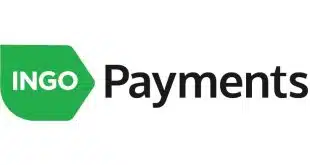With criminals continually devising ways to defeat rules-based applications used for detecting illicit cross-border payments, ThetaRay Ltd., an Israel-based cybersecurity and data-analytics firm, on Monday introduced SONAR, a software-as-a-service-based machine-learning application that detects known and unknown risks associated with cross-border payments.
Using machine-learning algorithms, SONAR identifies normal characteristics within specific types of transactions, then leverages that information to identify abnormal characteristics that indicate a potentially illicit transaction, such as money laundering, terrorist financing, human trafficking, and narco-trafficking.
Identification of unknown risks when it comes to money laundering can be problematic for rules-based applications, because those risks are only identified once a suspicious activity report has been filed and the transaction in question investigated.

“With machine learning, SONAR is not relying on rules-based architecture, [which] the financial institutions are determining [is] no longer enough good enough to keep up with unknown risks,” says Shaun Smith-Taylor, senior director and global head of solutions for ThetaRay.
The company argues rules-based applications have been unable to keep current with criminals’ evolving tactics to launder money through cross-border transactions. The reason, it says, is that these applications rely on a set of rules coded by humans to which a legitimate transaction must conform. In comparison, machine learning uses artificial intelligence that defines its own set of rules based on data outputs.
Cross-border payments are projected to reach $35 trillion by 2022, according to ThetaRay’s Web site.
“In the past five years, financial institutions have changed their thinking about artificial intelligence as they have deployed it in other areas of their operations,” says Smith-Taylor. “Anti-money laundering is one of the last areas into which AI is moving.”
SONAR expands on ThetaRay’s previous anti-money laundering technology, which is used by large global financial institutions such as Santander and CecaBank, by revealing suspicious transaction profiles and unlocking hidden insights not only from SWIFT traffic but also real time and automated clearing house networks. SWIFT is a messaging network that financial institutions use to transmit information and instructions through a standardized system of codes.
The introduction of SONAR follows a new $31-million round of funding, which TheatRay will use to expand its technology around cross-border payment, Smith-Taylor says.





